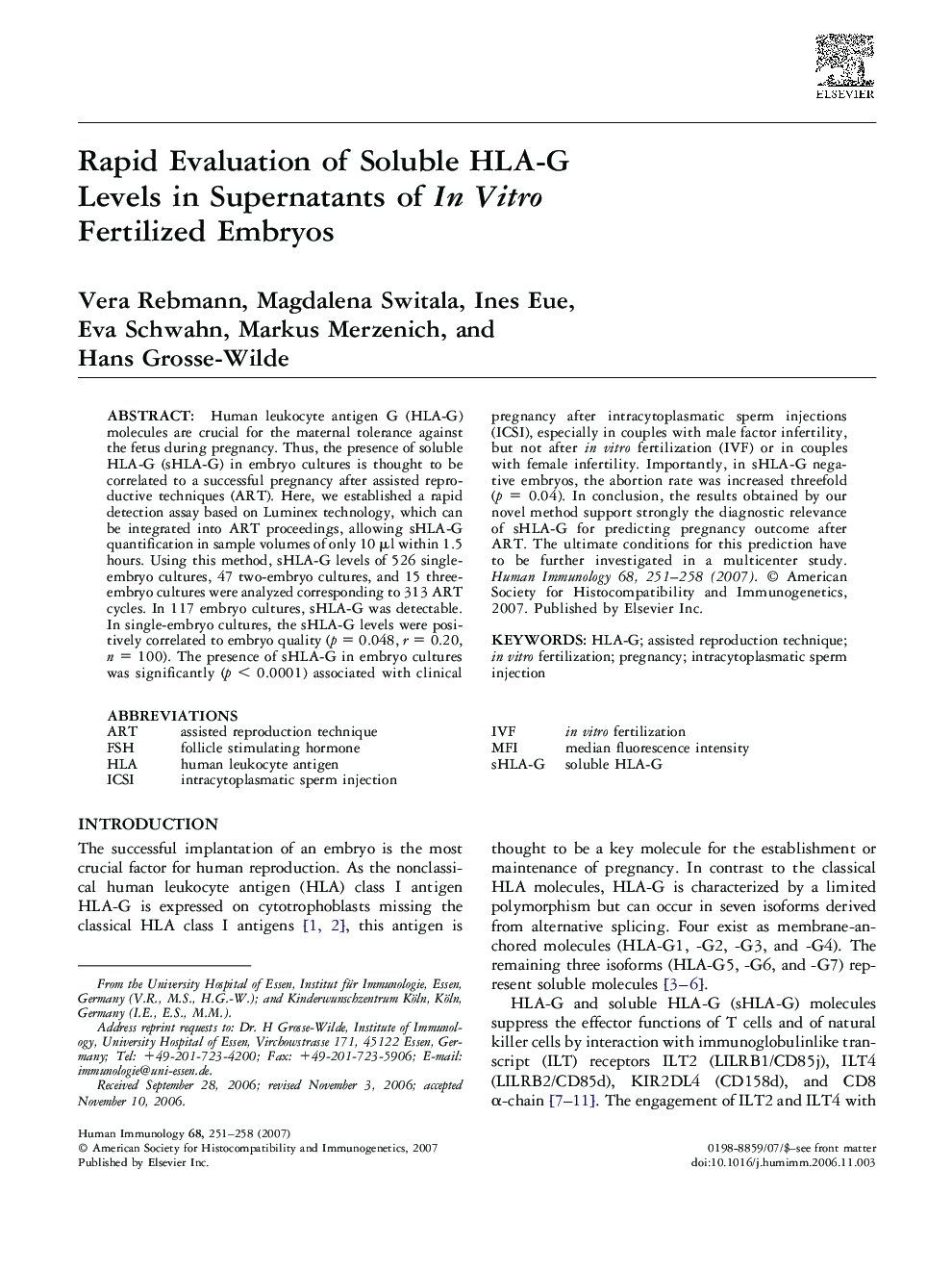| Article ID | Journal | Published Year | Pages | File Type |
|---|---|---|---|---|
| 3352389 | Human Immunology | 2007 | 8 Pages |
Human leukocyte antigen G (HLA-G) molecules are crucial for the maternal tolerance against the fetus during pregnancy. Thus, the presence of soluble HLA-G (sHLA-G) in embryo cultures is thought to be correlated to a successful pregnancy after assisted reproductive techniques (ART). Here, we established a rapid detection assay based on Luminex technology, which can be integrated into ART proceedings, allowing sHLA-G quantification in sample volumes of only 10 μl within 1.5 hours. Using this method, sHLA-G levels of 526 single-embryo cultures, 47 two-embryo cultures, and 15 three-embryo cultures were analyzed corresponding to 313 ART cycles. In 117 embryo cultures, sHLA-G was detectable. In single-embryo cultures, the sHLA-G levels were positively correlated to embryo quality (p = 0.048, r = 0.20, n = 100). The presence of sHLA-G in embryo cultures was significantly (p < 0.0001) associated with clinical pregnancy after intracytoplasmatic sperm injections (ICSI), especially in couples with male factor infertility, but not after in vitro fertilization (IVF) or in couples with female infertility. Importantly, in sHLA-G negative embryos, the abortion rate was increased threefold (p = 0.04). In conclusion, the results obtained by our novel method support strongly the diagnostic relevance of sHLA-G for predicting pregnancy outcome after ART. The ultimate conditions for this prediction have to be further investigated in a multicenter study.
